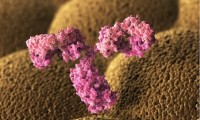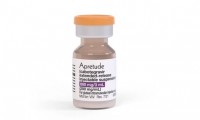-
Moderna and Immatics announce oncology collaboration worth over $1.7bn
- Source: drugdu
- 171
- September 16, 2023
-
CancerVAX joins forces with UCLA to develop a universal CAR-T cell therapy
- Source: drugdu
- 154
- September 14, 2023
-
UK rejoins EU’s Horizon Europe science programme
- Source: drugdu
- 202
- September 11, 2023
-
Bavarian Nordic Drops COVID Booster After Poor Phase III Results
- Source: drugdu
- 105
- September 5, 2023
-
Pfizer, BioNTech Challenge Moderna’s COVID-19 Patents with USPTO
- Source: drugdu
- 111
- September 1, 2023
-
Pfizer, Moderna Target Emerging Variants with Updated COVID-19 Shots
- Source: drugdu
- 193
- August 22, 2023
-
Severe COVID-19 may cause long-term changes to innate immune system
- Source: drugdu
- 183
- August 21, 2023
-
MSF, trying to secure supplies of ViiV’s Apretude, calls out new clauses in purchasing contract
- Source: drugdu
- 135
- August 19, 2023
-
Arcturus JV scored $115M in Japanese grants to boost mRNA manufacturing
- Source: drugdu
- 231
- August 16, 2023
-
FDA Delays PDUFA Date for Valneva’s Chikungunya Shot
- Source: drugdu
- 112
- August 16, 2023
your submission has already been received.
OK
Subscribe
Please enter a valid Email address!
Submit
The most relevant industry news & insight will be sent to you every two weeks.













